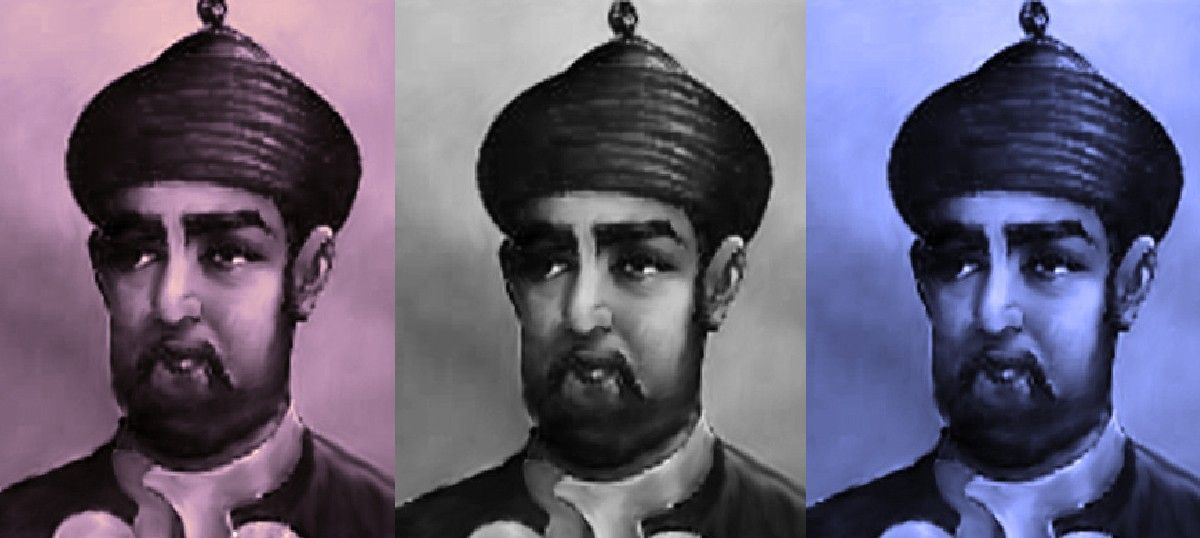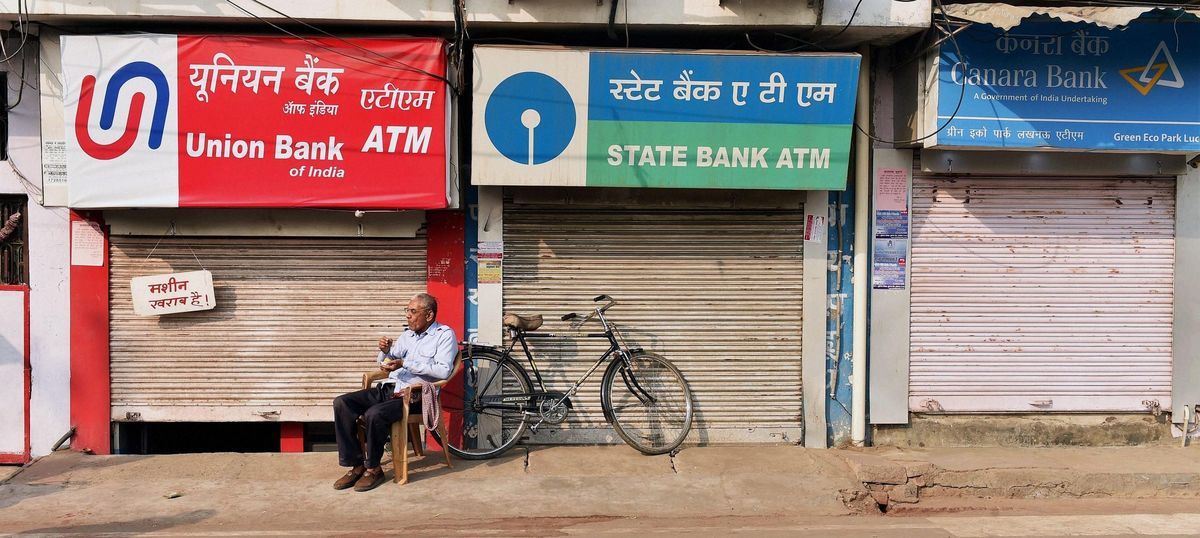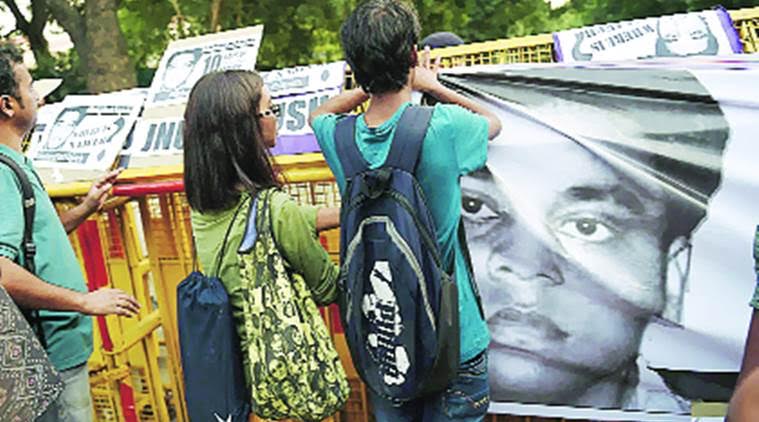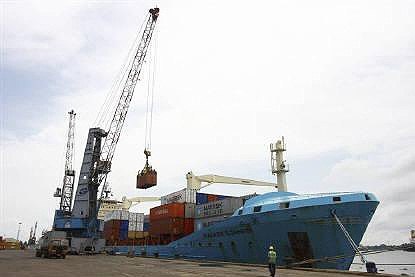The major gamble the Delhi sultan took with the currency in his kingdom led to the weakening of his sultanate.

Since November 8, a crowd in rural Madhya Pradesh has looted a ration shop, people in long lines at banks and Automated Teller Machines in Delhi and elsewhere have broken into fisticuffs, parents do not have enough money to feed their children, patients cannot pay for their treatment, and farmers are unable to buy inputs to sow the next crop. These are just a few examples of the fallout of last Tuesday’s move by the Narendra Modi government to suddenly withdraw high-denomination notes. Several have referred to the decision as Tughlaqian in ambition.The one decision for which Muhammad bin Tughlaq, the 14th century sultan of Delhi, is most remembered, is the disastrous shifting of his capital from Delhi to Daulatabad in the Deccan, in present-day Maharashtra. The hardship this sudden move caused to the people led to his name becoming an idiomatic expression in Hindi-Urdu denoting an unhinged dictator. But this wasn’t the only one of Tughlaq’s decisions that ended in disaster.
Like Modi, Tughlaq took a major gamble with the currency in his kingdom. Unfortunately for the ruler, that move was a disaster, leading to a weakening of his sultanate.
Fragile monetary system
If anything, the chaos in India following the announcement of the demonetisation policy points to just how incredibly fragile the modern monetary system is. What was wealth at one moment, became, through the decision of a single man, worthless pieces of paper.
The move starkly shows that paper money in itself has no value. Modern paper or plastic currency, called fiat money, has worth only because a sovereign government says so. If this system seems odd, you would not be wrong to think so given how new it is.
Once humans moved beyond the barter system, people mostly used coins, usually made of precious metals like gold and silver, as currency. This system is known as commodity money.
Since the metal in the coin itself had value, it was a rather stable system. However, it was stymied by shortages of precious metals.
At some point in the seventh century, the Chinese invented modern-style paper money based on a system of conversion that allowed paper notes to be exchanged for gold, silver or silk. Called representative money, the system was so radical it took Europe another 1,000 years to use it.
However, Tughlaq was the one sovereign who managed to implement this Chinese idea before the West.
As the Sultan of Delhi, he ruled over northern parts of the Indian subcontinent and the Deccan. After he moved his capital to Daulatabad, in 1329, Tughlaq introduced representative or token money. These were coins of copper and brass that could be exchanged for fixed amounts of gold and silver from the Delhi Sultanate.
Called a tanka – a name that would later give rise to the Bengali word for currency, taakaa – the new coins were aimed at financing the sultanate’s war operations, which stretched dangerously across the subcontinent.
Shoddy implementation
Today, the system of representative money has ended for much of the modern world. But till 1971, people could convert $35 for one ounce (28 grams) of gold – this is how representative currency worked.
But when Tughlaq introduced representative money in his kingdom, it was a drastically unfamiliar idea. Only one sovereign outside of China had done it – the 13th century Persian king Gaykhatu. That experiment caused so much chaos that he had to withdraw it within eight days, and he was even assassinated soon after.
While Tughlaq’s move was good in theory, he failed in implementation. Representative currency is a sound idea but it has one weak spot: forgery. Since representative money is worth very little intrinsically and can actually be exchanged for valuable commodities like gold or silver, there is a lot of value in making forgeries. Tughlaq’s tanka, made of brass or copper, could be traded in for valuable gold or silver from the government – a lucrative deal for good forgers.
Forging chaos
Modern governments protect their paper currency against forgers by adding security features such as watermarks to make it difficult for people to counterfeit the notes. In fact, this was one of the reasons initially trotted out by the Union government to justify its demonetisation plan. However, as it turned out, due to poor planning by the government, there was no time to add any new security features.
While this is unfortunate, the Modi government could take solace in the fact that this is not the first time that a government in the Indian subcontinent has badly planned new currency.
Tughlaq’s new tanka was not crafted carefully enough to prevent forgers from replicating it. As word got around, counterfeit tankas started to flood the market. A contemporary historian reported that every house “became a mint”. Soon, there were so many forgeries floating around that it led to hyperinflation, and the tankas became worthless.
To stem the economic chaos, the Tughlaq administration rolled back the tanka and promised to compensate genuine tanka holders with gold and silver. However, the number of fakes were so large that for a number of years, mounds of worthless copper tankas, rejected by the government, remained piled outside the Daulatabad fort.
As could be imagined, the economic chaos was not good for Mohammad Bin Tughlaq, and it was one of the reasons for the dismemberment of his kingdom. By the time Tughlaq died in 1351, key parts of his empire such as Bengal and the Deccan had liberated themselves, and the sultanate was confined to a small area around Delhi and the western parts of current day-Uttar Pradesh.
This article was first published on Scroll.in







